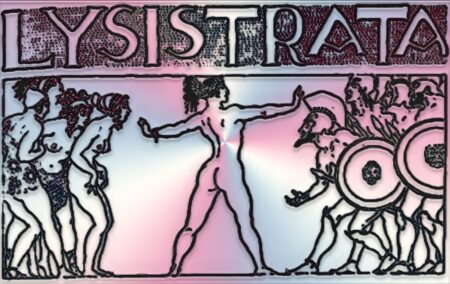The long road South African women have travelled and still have before them, particularly on the social equality front, would have been a lot shorter if the African National Congress government had done a better job with the economy, not indulged its penchant for plunder, and long ago told feudal chiefs and traditional kings to take a hike.
But I admit it was a relief that our not very energised Department of Women (and other segments of marginalised society, or whatever its full name) did not opt to mark this women’s month by transforming into the silly and unpronounceable Department of Womxn, or, heaven forbid, the Department of People with Cervixes, who once had Cervixes or who would like to have Cervixes.
Frankly, if I were the goddess incarnate the financial institutions and commercial corporates would have me believe I am for this one month of the year (as a Momentum investor I am particularly embarrassed at its ‘Womentum’ virtue-signalling and performative sycophancy), I would simply cancel this ghetto ministry completely and make sure all government policy always took into account these segments of the population.
While I’m all powerful and still wearing my lockdown ‘goddess’ pants (they are an actual thing, check Google), I may also decree an end to the women and youth auxiliary structures so beloved of our political parties. (Note to Herman Mashaba: When you launch your party later this month please refrain from creating these standard sops and treat females, at least, like equals.)
More protection
This year President Cyril Ramaphosa promised more protection for women (apparently this would come about simply by ratifying the ILO Convention on Violence and Harassment in the Workplace) and made the rather rash undertaking to ensure 40% of products and services procured by public entities would be sourced from women-owned businesses.
Forgive my cynical streak, but I feel a whole lot of catering contracts, fronting and yet more middleperson cost-hiking coming on.
Government also adopted the UN-backed ‘Generation Equality’ theme aimed at ensuring gender equality for women by 2030.
I am woman, I can do what I want this month, I run with the wolves – so here’s what I think about this gender-equality goal.
Thanks to the hard lifting done by second- (me and my friends) and third-wave feminists, we gained much more in the past 64 years than simply the right to wear flat shoes, as Emma Watson apparently believes. Our Constitution guarantees our right to equality before the law and we have a host of laws to protect women against discrimination in the workplace.
Wallowing in victimhood
It would be great if we occasionally celebrated the long way we’ve come instead of wallowing in victimhood.
Like many of the scholars and writers I read – Camille Paglia, Ayaan Hirsi Ali, Christina Hoff Sommers, Lionel Shriver – I would argue that an outcome of complete gender equality will never be possible, however much progress women make over the next decade in changing societal attitudes and seeing their rights asserted.
That’s because women and men are biologically different. They have different competences and abilities. They should be free to make their own choices about who they want to be and what they want to do. Equality should come about organically. This all seems perfectly rational to some of us. But in our new woke world, it’s not acceptable.
Nanny states are passionate about engineering society. Our own socialists and racial nationalists, albeit with race uppermost in their minds, have the Equity Employment Amendment Bill, published last month, which will allow them to go a step further on BBEEE and enforce demographic representivity across the country.
Diversity is good and desirable – it does have proven advantages for business and society, so it is in everyone’s interest to pursue it, particularly if it also includes diversity of thought, education, class and experience. But quotas are demeaning and destructive of relationships.
‘Call it quits’
Unfortunately, as Shriver points out in her recent article ‘It’s time for feminists to call it quits’, ‘we’ve never evolved a protocol whereby social justice campaigns, having fundamentally prevailed, call it quits’.
What women who need help really need now is a government that is prioritising improving everyone’s economic prospects and ability to make a living. Not setting quotas for this or that segment of the population. Or playing around with restrictions, prohibitions, curfews.
It’s true, as McKinsey and Company and Melinda Gates, trailing her trillions, are telling us: Covid-19, the lockdowns, school closures and job culling have had a particularly dire effect on women.
But South African women have it tough even in normal times, barely able to walk safely outside their homes and not even safe in them. They are hobbled and held back by feudal attitudes, unenlightened chiefs and kings, fatherless, wastrel progenitors, and selfie-snapping sisters who choose Baby Mama status or a Beemer-driving boyfriend over any linked-arm solidarity.
Lockdown just added to their burdens.
Quality of women’s lives
Even if we were to get a government capable of improving the quality of women’s lives and chances of equality by improving the economy, the time has come for women to wean themselves off state or institutional handouts and hand ups.
Here’s what I took from Ramaphosa’s Monday newsletter that I liked: ‘It is said that freedom is not given but taken.’
It is perhaps time for women to begin devising mass action methods to ensure equal treatment and respect for their rights in their own communities and in society generally.
The strategy of persuasion successfully deployed by Aristophanes’ comedy heroine Lysistrata may be useful. She convinced the women of warring cities to abstain from sex with their men until they agreed to negotiate an end to the war. Worth a try if all else fails.
The views of the writer are not necessarily the views of the Daily Friend or the IRR
If you like what you have just read, subscribe to the Daily Friend

